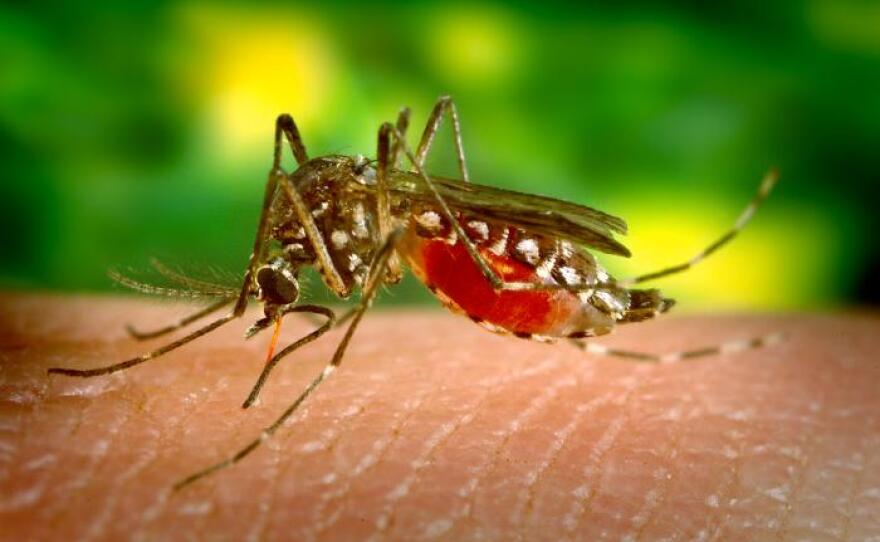In recent years, scientists have been using new genetic tools to modify mosquitoes in their labs. Their goal — shared by a team of biologists at UC San Diego currently engaged in this research — is to develop new ways of fighting the spread of insect-borne diseases like Zika, malaria and dengue.
But a new study led by a UC San Diego researcher finds that some Americans are strongly opposed to releasing genetically modified insects in the wild, presenting challenges to plans for testing this approach in the U.S.
Recently, the biotech company Oxitec sought to test its genetically engineered mosquitoes in Florida, a state that has experienced outbreaks of dengue and Zika in recent years. Both of those diseases are spread by the aedes aegypti mosquito, which is also found in San Diego.
But many residents of Florida's Key Haven, the planned location for Oxitec's trial, resisted the proposed test. A majority of voters in the surrounding county wanted to move forward with testing, but Key Haven residents rejected the proposal last November. Oxitec is now looking for another trial site in Florida.
UC San Diego associate professor of psychiatry Cinnamon Bloss wanted to know how members of the American public reacted to Oxitec's plan. So she and her colleagues analyzed more than 2,600 public comments sent to the FDA in 2016 regarding the proposed test.
Bloss said, "These are people motivated to get online and respond to a federal document. And so perhaps unsurprisingly, we found that about three quarters of them were generally opposed to doing this."
Another 22 percent of commenters were supportive of the plan, while the rest remained neutral. The comments came from all over the country, not just Florida. The researchers' findings were published in the journal JAMA on Tuesday.
Commenters who opposed the plan were more likely to discuss mistrust of government or industry, while those who supported the testing were more likely to mention potential benefits to human health.
Bloss noted that her study is not pulled from a random sample of the American public. While this input may have come from especially opinionated people, Bloss said it shows the importance of engaging with the concerns of community members before hatching plans to test genetically modified bugs in their backyards.
"I actually think it's really important to start doing some of this work in a state like California, where we haven't seen an outbreak yet," Bloss said. "It's certainly possible that something like that could happen in the future."
UC San Diego biologist Ethan Bier is among the local researchers who have received federal funding to explore the possibility of using genetic tools to fight mosquito-borne diseases in California.
He and his colleagues have already shown that it's possible to spread malaria resistance genes through mosquito populations using a kind of genetic chain reaction called gene drive.
Bier told KPBS that Bloss's new study is "a very important analysis of what went wrong in Florida." He said, "Hopefully the lessons from this example will inform future approaches to early and and effective public engagement."






